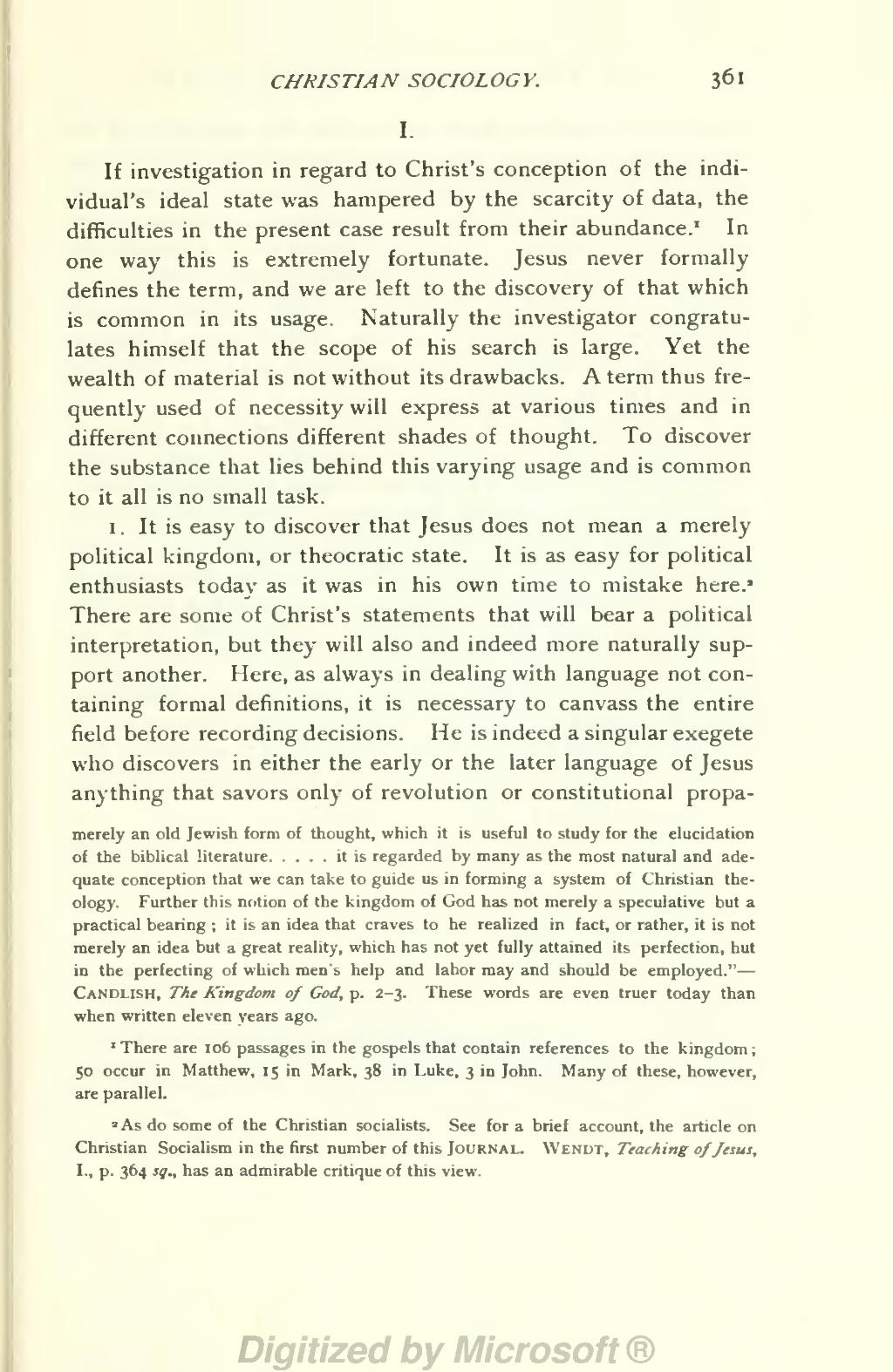I.
If investigation in regard to Christ's conception of the individual's ideal state was hampered by the scarcity of data, the difficulties in the present case result from their abundance.[1] In one way this is extremely fortunate. Jesus never formally defines the term, and we are left to the discovery of that which is common in its usage. Naturally the investigator congratulates himself that the scope of his search is large. Yet the wealth of material is not without its drawbacks. A term thus frequently used of necessity will express at various times and in different connections different shades of thought. To discover the substance that lies behind this varying usage and is common to it all is no small task.
I. It is easy to discover that Jesus does not mean a merely political kingdom, or theocratic state. It is as easy for political enthusiasts today as it was in his own time to mistake here.[2] There are some of Christ's statements that will bear a political interpretation, but they will also and indeed more naturally support another. Here, as always in dealing with language not containing formal definitions, it is necessary to canvass the entire field before recording decisions. He is indeed a singular exegete who discovers in either the early or the later language of Jesus anything that savors only of revolution or constitutional propa-
- ↑ There are 106 passages in the gospels that contain references to the kingdom; 50 occur in Matthew, 15 in Mark, 38 in Luke, 3 in John. Many of these, however, are parallel.
- ↑ As do some of the Christian socialists. See for a brief account, the article on Christian Socialism in the first number of this Journal. Wendt, Teaching of Jesus, I., p. 364 sq., has an admirable critique of this view.
merely an old Jewish form of thought, which it is useful to study for the elucidation of the biblical literature it is regarded by many as the most natural and adequate conception that we can take to guide us in forming a system of Christian theology. Further this notion of the kingdom of God has not merely a speculative but a practical bearing; it is an idea that craves to be realized in fact, or rather, it is not merely an idea but a great reality, which has not yet fully attained its perfection, but in the perfecting of which men's help and labor may and should be employed."—Candlish, The Kingdom of God, p. 2–3. These words are even truer today than when written eleven years ago.
